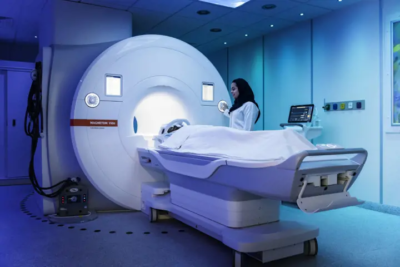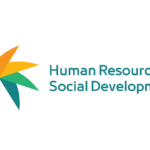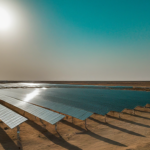
“Aramco is “trading in its own universe” at 21 times expected 2021 earnings of roughly $80 billion. That compares with a 13 p/e for the western majors like ExxonMobil and Chevron, 6 for the Chinese majors, and 6 for Russia’s Rosneft.”
–Oswald Clint, Bernstein Research, commenting on the continued appeal of Saudi Aramco for investors. [Forbes]

“Throughout the holy month of Ramadan, over 15.5 million people performed prayers, including 5.1 million Umrah pilgrims, at the Grand Mosque in Makkah. No coronavirus infection was reported among them.”
Dr. Abdulfattah Mashat, Deputy Minister of Hajj and Umrah. [Asharq Al-Awsat]

“The numbers suggest that the non-oil economy has already fully recovered from the adverse impact of the pandemic in Q2 2020, despite lingering Covid-related restrictions on internal mobility and international travel.”
–Farouk Soussa, Middle East and North Africa economist at Goldman Sachs Group Inc., commenting on recent data from Saudi Arabia’s General Authority for Statistics showing the non-oil sector grew by 3.3% in Q1 2021 while the broader economy shrank 3.3% due to reduced oil revenues. [Yahoo via Bloomberg]

“In a sense this is unprecedented…One sees that it’s not actually black, for example… As I understand it, it’s the first time there is a magnified digital photo of the stone and one can see the stone up close and personal.”
–Afifi al-Akiti, a fellow in Islamic studies at the University of Oxford, reacting to photos published by the Saudi government showing for the first time high-resolution images of the holy Kabaa stone, in Mecca. [Daily Mail]

“A typical electric car requires six times the mineral inputs of a conventional car and an onshore wind plant requires nine times more mineral resources than a gas-fired plant. Since 2010 the average amount of minerals needed for a new unit of power generation capacity has increased by 50% as the share of renewables in new investment has risen.”
–The International Energy Agency [IEA] produced a fascinating report on the relationship between clean energy and the minerals it depends on for production and development. [IEA]

“Receiving a coronavirus vaccine will be a mandatory condition for male and female workers to attend workplaces in all sectors (public, private, non-profit).”
–Saudi Arabia’s Ministry of Human Resources and Social Development, in a post on Twitter announcing that in order for employees to return to the workplace, they must be vaccinated. [Twitter/Reuters]

“This is a global health crisis, and the extraordinary circumstances of the COVID-19 pandemic call for extraordinary measures. The Administration believes strongly in intellectual property protections, but in service of ending this pandemic, supports the waiver of those protections for COVID-19 vaccines.”
–Katherine Tai, U.S. trade representative, expressing United States’ support for a WTO proposal to waive intellectual property rights for COVID-19 vaccines. [NPR]

“The program to codify legal practices is welcome and will strengthen the legal infrastructure for business. The PPP/asset sales program has considerable scope to increase the efficiency of capital allocation and service provision for the government. The growing role of digitalization and the move to e-government, e-commerce, and digital banking have the potential to boost productivity given the young and tech-savvy population. Ongoing initiatives to support SMEs and entrepreneurs are welcome. The fintech sector is showing promise in delivering innovative financial solutions that benefit SMEs and others who are less well-served by banks.”
–Item #11 of the 15-point Concluding Statement of the 2021 IMF’s annual consultation meetings in Saudi Arabia. [IMF]

“The Saudi Arabia PMI rebounded in April to indicate a strengthening of growth across the non-oil economy. New orders picked up at the quickest rate for three months as business conditions continued to recover from COVID-19.”
-David Owen, Economist at IHS Markit. Business activity in Saudi Arabia’s non-oil private sector hit a three-month high in April and employment grew for the first time in five months, a survey showed on Tuesday. [Reuters]

“SAGO has 3.3 million tons of grain-storage space… Saudi Arabia vies with China as the biggest importer of barley, buying about 6.9 million tons annually. It uses the grain mostly to feed sheep, camels and goats. It also ships in around 3 million tons a year of wheat.”
-Arab News, reporting on State-owned Saudi Arabia Grains Organization, which just completed the sale of all its flour mills for about $1.5 billion, is seeking bids for its silos as it continues to try to privatize assets. [Arab News]











